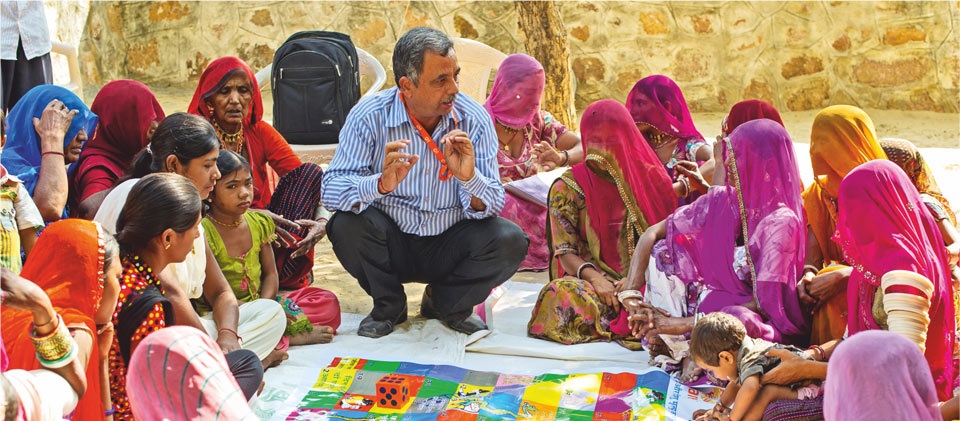HUMAN RIGHTS


At Vedanta, human rights are accorded the highest category of 'critical importance' in the materiality matrix and forms an integral part of our core value of Respect.
Our human rights policy is aligned to the 'United Nations Guiding Principles on Business and Human Rights’ and includes strict prohibition on the use of child or forced labour - either directly or through contract vendors. We adhere to all human rights regulations, in letter and spirit, ensuring the protection of fundamental rights of all direct and indirect employees as well as those who are in our circle of influence.
We recognise that for our workforce to adhere to the tenets of human rights they need to undergo training. We ensure that all our new hires go through Code of Conduct and Human Rights training. In FY 2017-18, more than 95% of our new hires received this training. We also train our security personnel on the organisation's policies and procedures related to human rights. In the last fiscal year, nearly 95% of our security force underwent this training.
DIRECT & INDIRECT WORKFORCE
Employees, whether direct or indirect, are a part of the Vedanta family and human rights of each of them are respected. Comprehensive systems, which include employee grievance processes, collective bargaining and contract labour management cells are in place at all our locations to protect their interests and partner in their progress.
COLLECTIVE BARGAINING
At Vedanta, we believe that collective bargaining is a collaborative process which ensures better compensation, allowances, incentives and bonuses, and creates a more productive and vibrant work environment in terms of output, health and safety.
Thus, the right to freedom of association is endorsed at all our operations. The collective bargaining agreements are formed based on transparent and fair discussions between the management and union representatives. Remuneration, allowances, working conditions, incentives and bonuses, health and safety, manpower productivity are part of the arrangement.
59% of our full-time employees at BALCO, CMT, HZL, KCM, Sesa, and Zinc International are covered by collective bargaining agreements.
SUPPLIER DILIGENCE
As one of the global leaders in the natural resource industry, we feel responsible to percolate the principles of human rights to our circle of influence. Our Suppliers Code of Conduct is implemented as part of the terms and conditions of supplier contracts across the Group and all new suppliers are required to sign, endorse and practice this Code.
We also have in place a Supplier & Contractor Sustainability Management Policy to implement sustainable practices across the supply chain. Both the Code and the Policy clearly communicate our expectations from our suppliers: to operate in compliance with all relevant legislation and follow our policies while executing work for or on our behalf.
The Supplier and Contractor Technical Standard further includes a Supplier Screening Checklist to evaluate contractor compliance relating to key issues, e.g. legal compliance, HSE management, labour management, human rights and child labour.
We continue to enhance adherence by conducting inductions, screenings, inspections and audits. Any concerns raised by interested parties on any of our key suppliers is promptly addressed by undertaking an independent assessment.
ENSURING RIGHT AGE FOR THE RIGHT JOB
Child, forced, or compulsory labour is a non-negotiable offence at Vedanta - be it direct or through a contractor. We strictly enforce this policy at all our operations. Further, we carry out periodic inspections of our remote mine locations and require proof of age for all contract workers.
AT STERLITE COPPER,WE USE A FOOL-PROOF RADIOLOGICAL AGE IDENTIFICATION PROCESS TO ASSESS CHILD LABOUR VIOLATIONS.
LOCAL COMMUNITIES
The nature of our industry necessitates our presence in remote corners and diverse geographies. While operating in multiple locations and multicultural communities, we always respect the local people and their culture. We abide by the following well-articulated and communicated
standards to conserve and nurture the native heritage:
Cultural Heritage Standard |
Land & Resettlement Management Standard |
Indigenous People and Vulnerable Tribal Groups Standard |
Cultural Heritage Standard
Land & Resettlement Management Standard
Indigenous People and Vulnerable Tribal Groups Standard
These standards have been developed in alignment with international practices including ICMM guidelines and IFC standards.


